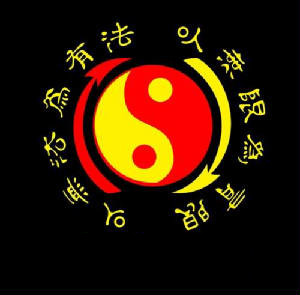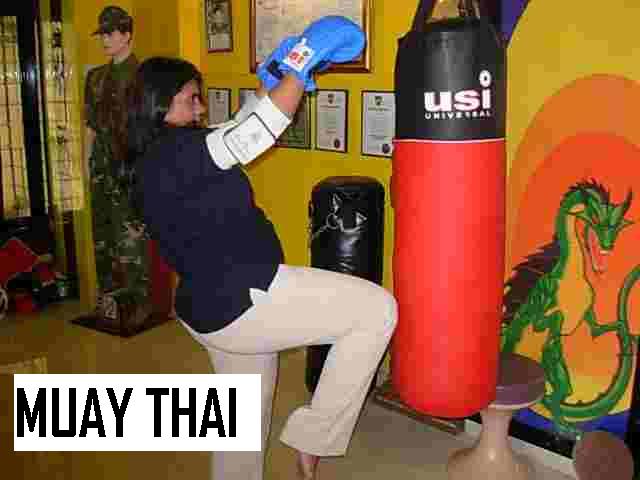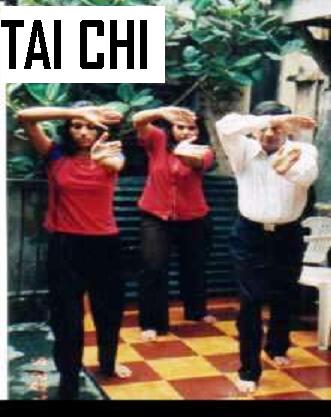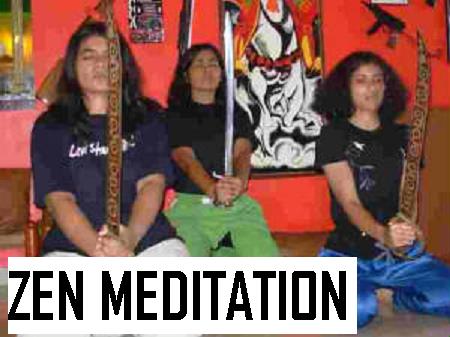


Qi Gong is a traditional Chinese Medicine technique that is believed to be at least 4,000 years old.
In traditional Chinese medicine, Qi Gong is considered beneficial for a large variety of medical conditions in chronic conditions such as cancer, chronic fatigue syndrome, osteoporosis, high blood pressure, cardiovascular disease, diabetes, stomach ulcers, neurological conditions, asthma etc
Our Instructors hold a
Old Chinese Medicine Academy Diploma in Qi Gong &
Traditional Chinese Medicine & Qigong Federation, ‘Qigong Expert’ degree
She has been certified by Dr Bernd Hohle, inheritor successor of Prof Dr Gu Ping, Shaolin monk from PRC (China)
the world renowned expert on Qigong.
Dr Komal also holds an International Instructor Certification in Qigong, Tai Chi, Meridian Therapy & Magnetotherapy. Other doctors are all qualified in Alternative & Complementary Medicine.
Old Chinese Medicine Academy Diploma in Qi Gong &
Traditional Chinese Medicine & Qigong Federation, ‘Qigong Expert’ degree
She has been certified by Dr Bernd Hohle, inheritor successor of Prof Dr Gu Ping, Shaolin monk from PRC (China)
the world renowned expert on Qigong.
Dr Komal also holds an International Instructor Certification in Qigong, Tai Chi, Meridian Therapy & Magnetotherapy. Other doctors are all qualified in Alternative & Complementary Medicine.
So if you are fed up of conventional Medical remedies, There is no harm in trying out this Oriental Alternative Method of healing, which has no side effects.
The Chinese Theory of Qigong:
Let's start from the basics: everything is energy at various levels - matter to light, body-thoughts-spirit. One way to think about energy is as if it's water in its many forms: an ice cube, water, steam, or humidity.
Every form of life, or matter (energy) also has a type of energy field around it to some extent. Energy radiates out in all directions from each being, just getting fainter as it gets further away from it's central source.
As we practice the Qi Gong over a period of time we can begin to feel this field energy emanating from us. This feeling of qi is first between our hands, as we begin to do Qi Gong our awareness of the energy & our vitality increases.
Once our qi begins to build, along with our awareness, we not only become aware of our own qi but also that around us.
Stress depletes much qi. If our minds are busy and can't calm down, much of the qi is used up by the thoughts and nervous energy expenditure. The mind uses up much energy in it's functioning which is why basic Qigong meditation and learning to calm and focus the mind is very important. As our health improves and our mind learns to center we begin to build up our qi reservoir.
If we have internal disease or sickness, instead of building up a reservoir of qi as we practice the qi is directed to heal the illness or weakness.
Qigong Tai Chi Healing Science
We have with our research analysed therapeutic Qigong and its effects on various Diseases.
With our conventional medicine backgrounds we could scientifically separate fact from fiction. We absorbed the Qigong techniques which were scientifically proven to be useful in disease and discarded complicated exercises based on myth. We called this Qigong Tai Chi Healing Science.
Various International Medical studies on beneficial effects of Qigong on various diseases have been published in leading scientific journals. Some of these we have tabulated (see below).
How is Qigong Tai Chi Healing Science practiced?
Qigong Tai Chi Healing Science’ involves five steps:
Meditating, Cleansing via breathing, building Qi the energy, Circulating Qi and Dispersing Qi.
Qigong Tai Chi Healing Science’ therapy consists of:
(sounds & oriental melody are used for each step.)
Qigong is beneficial in
Addiction
Angina & Heart Disease
Anti-aging & Youth preservation
Anticoagulation & Blood thinning
Anxiety & Stress
Asthma
Atherosclerosis & Coronary blockades
Back pain, Sciatica, Spondylosis
Cancer prevention and treatment
Cardioprotection & Preventing Heart disease
Congestive heart failure
Diabetes
Chronic illness
Gastritis & Peptic Ulcers
Gastrointestinal disease
Headache
Heart attack prevention
Heart rate variability
Immune system stimulation
Improved sleep
Improved workplace efficiency
Kidney disease
Liver disease
Renal isease
Mental illnesses
Multiple sclerosis
Neurologic disorders
Orofacial pain, Chronic headache
Parkinson's disease
Peripheral vascular disease
Psychosis
Stress reduction
Stroke prevention
Suicide prevention
Many other uncommon diseases.
Angina & Heart Disease
Anti-aging & Youth preservation
Anticoagulation & Blood thinning
Anxiety & Stress
Asthma
Atherosclerosis & Coronary blockades
Back pain, Sciatica, Spondylosis
Cancer prevention and treatment
Cardioprotection & Preventing Heart disease
Congestive heart failure
Diabetes
Chronic illness
Gastritis & Peptic Ulcers
Gastrointestinal disease
Headache
Heart attack prevention
Heart rate variability
Immune system stimulation
Improved sleep
Improved workplace efficiency
Kidney disease
Liver disease
Renal isease
Mental illnesses
Multiple sclerosis
Neurologic disorders
Orofacial pain, Chronic headache
Parkinson's disease
Peripheral vascular disease
Psychosis
Stress reduction
Stroke prevention
Suicide prevention
Many other uncommon diseases.
So if you are fed up of conventional Medical remedies, There is no harm in trying out this Oriental Method of healing, which has no side effects.
ome recent scientific studies proving the
BENEFITS OF QI GONG THERAPY are listed below:
BENEFITS OF QI GONG THERAPY are listed below:
1) Suzuki M, et al. Clinical effectiveness of the AST Chiro method & Qigong on the chronic renal failure and angina pectoris. Jap Mind-Body Science 1993;2(1):61-70.
2) Lim YA, Boone T, Flarity JR, et al. Effects of Qigong on cardiorespiratory changes: a preliminary study. Am J Chin Med 1993;21(1):1-6.
3) Iwao M, Kajiyama S, Mori H, et al. Effects of qigong walking on diabetic patients: a pilot study. J Altern Complement Med 1999;5(4):353-358.
4) Mayer M. Qigong and hypertension: a critique of research. J Altern Complement Med 1999;5(4):371-382.
5) Lee MS, Huh HJ, Kim BG, et al. Effects of Qigong Qi-training on heart rate variability. Am J Chin Med 2002;30(4):463-470.
6) Agishi T. Effects of the external Qigong on symptoms of arteriosclerotic obstruction in the lower extremities evaluated by modern medical technology. Artif Organs 1998;22(8):707-710.
7) Loh SH. Qigong therapy in the treatment of metastatic colon cancer. Altern Ther Health Med 1999;5(4):111-112.
8) Reuther I, Aldridge D. Qigong Yangsheng as a complementary therapy in the management of asthma: a single-case appraisal. J Altern Complement Med 1998;4(2):173-183.
9) Wang C, Xu D, Qian Y, et al. Effects of Qigong on preventing stroke and relaxing the multiple cerebro-cardiovascular risk factors: follow up of 242 hypertensive patients for 30 years. Proc Second World Conf Academ Exch Med Qigong 1993;123-124.
10) Chen KW, Marbach JJ. External Qigong therapy for chronic headaches orofacial pain. J Altern Complement Med 2002;Oct, 8(5):532-534. No abstract available.
11) Ismail K, Tsang HW. Qigong and suicide prevention. Br J Psychiatry 2003;Mar, 182:266-267. No abstract available.
12) Lee MS, Huh HJ, Jeong SM, et al. Effects of Qigong on immunity cells. Am J Chin Med 2003;31(2):327-335.
13) Li M, Chen K, Mo Z. Use of Qigong therapy in the detoxification of heroin addicts. Altern Ther Health Med 2002;Jan-Feb, 8(1):50-54, 56-59.
14) Tsang HW, Cheung L, Lak DC. Qigong as a psychosocial intervention for depressed elderly with chronic physical illnesses. Int J Geriatr Psychiatry 2002;Dec, 17(12):1146-1154.
15) Wu R, Liu Z. Study of Qigong on hypertension and reduction of hypotensor. Proc Second World Conf Academ Exch Med Qigong 1993;125.
16) Wu WH, Bandilla E, Ciccone DS, et al. Effects of Qigong on late-stage complex regional pain syndrome. Altern Ther Health Med 1999;5(1):45-54.
17) Yu X, Xu J, Shao D, et al. The auxiliary qigong therapy for Parkinson's disease and its effects on EEG and P300. J Intl Soc Life Info Science 1998;16(1):73-81.
18) Yang ZC, Yang SH, Yang SS, Chen DS. A hospital-based study on the use of alternative medicine (& Qigong) in patients with chronic liver and gastrointestinal diseases. Am J Chin Med 2002;30(4):637-643.
Med 1994;65(11):986-991.






